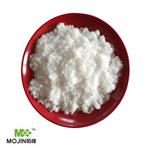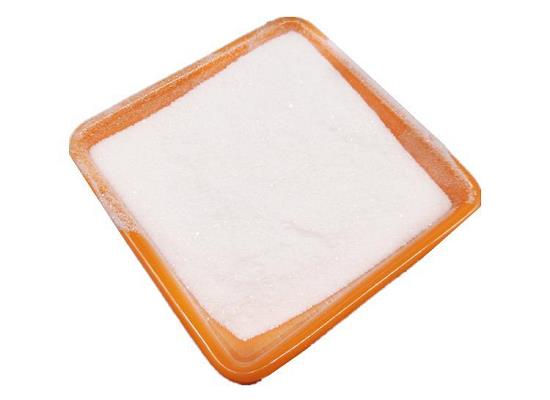Magnesium Chloride: A Versatile Chemical Compound
Dec 31,2024
Introduction
Magnesium chloride hexahydrate is an inorganic compound. It is a crystalline substance that consists of magnesium chloride and water molecules. Magnesium chloride hexahydrate is widely used in industrial and commercial applications, including as a deicer, in the production of magnesium metal, and in pharmaceutical formulations.
Magnesium chloride hexahydrate is especially valuable in industries requiring high-purity magnesium compounds, such as in the production of refractory materials, fertilizers, and as a supplement for magnesium deficiency. It also plays an essential role in water treatment processes, where it helps to remove impurities and softens hard water.
To maintain its effectiveness, Magnesium chloride hexahydrate should be stored in a cool, dry place, away from moisture and heat. When handling the compound, it is important to take appropriate safety precautions, including wearing protective gloves and eyewear, as it can be irritating to the skin and eyes.

Figure 1 Characteristics of Magnesium chloride hexahydrate
Properties of Magnesium chloride hexahydrate
Colorless crystalline or white crystalline powder. Melting point 118 ℃ (decomposition); d 1. 56。 Easily deliquescent. The product is dissolved in 0.6mL of water, 0.3mL of boiling water, and 2mL of ethanol, and the solution is neutral. Heating turns into oxychloride.
The preparation method of Magnesium chloride hexahydrate
Add magnesite (or magnesium oxide, magnesium carbonate) to water. Slowly add hydrochloric acid after mixing. After the reaction is complete, add sulfuric acid and saturated hydrogen sulfide aqueous solution to the solution. Let it stand and filter. Heat the filtrate at 80-90 ℃ to concentrate it to a relative density of 1 33-1.35. Further filtration, cooling, and extraction to obtain magnesium chloride.
The use of Magnesium chloride hexahydrate
Magnesium chloride hexahydrate has a wide range of applications and is an important industrial raw material. It is the main product of salt chemical industry and used as a refractory material and wall bonding agent in metallurgical industry. It is also a raw material for smelting magnesium metal and magnesium sand; In the chemical industry, it is a raw material for producing various magnesium salts, such as magnesium oxide, magnesium carbonate, and magnesium hydroxide; In the construction industry, magnesium chloride can be used to make magnesia cement, process building components, artificial marble, particleboard, etc; Used in the textile industry for processing textiles; In agriculture, cotton defoliants can be produced to impregnate wood and make it fire-resistant; It can also be used as a freezing medium, a snow melting agent for snow removal, and a cement antifreeze agent for winter construction. White Magnesium chloride hexahydrate is mainly used as a coagulant in food and soy products. It can also be used as a compound feed, protein coagulant, and fermentation aid. Magnesium chloride used in medicine can be used to prepare artificial kidney dialysis solution and disinfectant.
Classification
Magnesium chloride hexahydrate can be classified into food grade, industrial grade, and aquaculture feed grade based on its different uses, which are reflected in different parameters. Food grade is mainly used as a coagulant or thickening agent in food, such as brine tofu, and is primarily used in protein-rich foods. Industrial grade has various applications, such as using its adsorption capacity as a desiccant, coagulant, mold release agent, flame retardant, etc.
Aquaculture grade utilizes the magnesium, calcium, sodium, and other elements in Magnesium chloride hexahydrate to enhance the absorption of trace elements in fish, shrimp, crab, seaweed, vegetation, etc. It can be found in different forms such as flakes, granules, and powder, mainly for the convenience of users. In terms of color, it can be transparent white, milky white, grayish white, or brown. The first three are called white magnesium, and the latter is called Pumei. The content of Magnesium chloride hexahydrate ranges from 43% to 47%, with the commonly used concentration being around 46%.
The safety of Magnesium chloride hexahydrate
Rat oral LDso: 8.1g/kg. The export products are lined with polyethylene plastic bags and cloth bags, and packaged in burlap bags externally, with a net weight of 50kg per bag. Domestic products are packaged in polyethylene plastic bags and woven plastic bags for external use, with a net weight of 70kg per bag. It should be sealed and stored in a cool, dry place, and protected from rain and sunlight during transportation. Handle with care during loading and unloading to prevent packaging damage. When a fire breaks out, sand and various fire extinguishers can be used to extinguish it.
![]() Reference
Reference
[1] Durlach J, Guiet-Bara A, Pagès N, et al. Magnesium chloride or magnesium sulfate: a genuine question[J]. Magnesium research, 2005, 18(3): 187-192.
[2] Spivey W H, Skobeloff E M, Levin R M. Effect of magnesium chloride on rabbit bronchial smooth muscle[J]. Annals of Emergency Medicine, 1990, 19(10): 1107-1112.
References:
[1] J DURLACH. Magnesium chloride or magnesium sulfate: a genuine question.[J]. Magnesium research, 2005, 18 3.
[2] W H SPIVEY R M L E M Skobeloff. Effect of magnesium chloride on rabbit bronchial smooth muscle.[J]. Annals of emergency medicine, 1990, 19 10. DOI:10.1016/s0196-0644(05)81513-6.
- Related articles
- Related Qustion
Supplementation with pyridoxal 5'-phosphate monohydrate can synthesize neurotransmitters such as dopamine and serotonin, maintaining a healthy nervous system.....
Nov 4,2025Biochemical EngineeringTrimethylstearylammonium chloride, with strong antimicrobial and anti-inflammatory properties, serves as an effective herbicidal ionic liquid and is crucial for medical and agricultural applications.....
Aug 22,2024APIMagnesium chloride hexahydrate
7791-18-6You may like
Magnesium chloride hexahydrate manufacturers
- Magnesium chloride hexahydrate
-

- $63.00 / 10kg
- 2025-11-05
- CAS:7791-18-6
- Min. Order: 10kg
- Purity: 0.99
- Supply Ability: 1000kg
- Magnesium chloride
-

- $3.00 / 25KG
- 2025-09-28
- CAS:7791-18-6
- Min. Order: 1KG
- Purity: 99%
- Supply Ability: 2000ton per week
- Magnesium chloride hexahydrate
-

- $0.00 / 25KG
- 2025-08-08
- CAS:7791-18-6
- Min. Order: 1KG
- Purity: 99%
- Supply Ability: 50000KG/month






